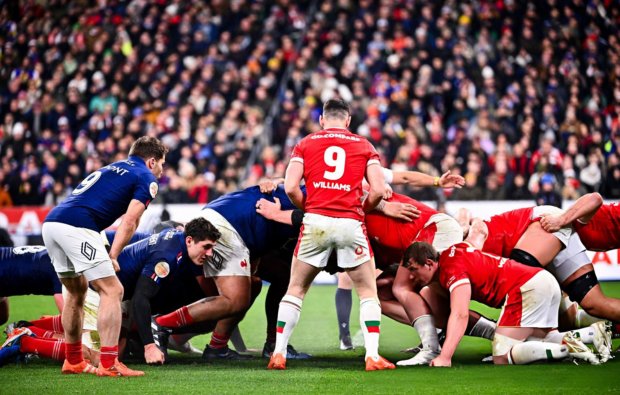The Cross-Border Rugby Kicks Off a New Era for Japan and New Zealand
- 5340

Japan Rugby League One chairman Genichi Tamatsuka has hailed next week’s kick-off in The Cross-Border rugby competition between Japan and New Zealand as a new era for relations between the countries at club level.
The Cross Border Rugby, which is one result of the Memorandum of Understanding that was signed between Japan Rugby Football Union and New Zealand Rugby last year, begins on February 3 when Tokyo Suntory Sungoliath meet the (Auckland) Blues.
Saitama Panasonic Wild Knights host the Gallagher (Waikato) Chiefs the next day.
The two Super Rugby sides will then play Yokohama Canon Eagles and Kubota Spears Funabashi Tokyo Bay on February 10.
Japan Rugby League One will pause after six rounds (this weekend) to cater for The Cross Border Rugby, while the New Zealand sides will combine the matches with training camps to prepare for the start of DHL Super Rugby Pacific, which begins on February 23.
“Hosting two New Zealand Super Rugby clubs is a major step forward for the relations between New Zealand and Japan, at both national and club level. All those who were involved in the discussions that created the Memorandum of Understanding are to be congratulated for what they achieved,” Mr Tamatsuka said.
“This is the start of a special relationship, something that I hope will move forward and develop into an important part of the club calendar in both Japan and New Zealand.”
The Chiefs made the final of Super Rugby last year, while the Blues bowed out a week earlier, both falling to the Crusaders, who were unavailable for The Cross-Border Rugby.
“One of the great things about this concept is that top teams from each country have been rewarded for their performance last season,” Mr Tamatsuka explained.
“Their achievements have opened up new opportunities for them, which is as it should be.”
Although the New Zealand sides will arrive having yet to start their own competition, Mr Tamatsuka believes the games will be hard fought, exciting the crowds.
“I have never seen a player who does not want to win every time they play, and I’ve no doubt that The Cross-Border Rugby will be fully competitive with each of the teams going for the win;” Mr Tamatsuka said.
“Many of the New Zealand players will never have experienced either playing in Japan, or playing against Japanese opposition, so these matches are a great experience for them.
“For our own players, it is the chance to test themselves against New Zealand’s best in a game they will never forget. If they are good enough to win, they will create a piece of history for their club that will rank alongside its’ finest achievements.”
Japan Rugby League One chief operating officer Hajime Shoji, who was one of the administrators whose work helped facilitate The Cross-Border Rugby, believes the Japanese clubs will acquit themselves well, delivering a level of performance that will make not just New Zealand, but the world, take notice of the rising standard of the league.
“It is inevitable that people remember Japan for the Sunwolves’ involvement in Super Rugby but while that was historic, and a great opening for Japan, The Cross-Border Rugby is completely different,” Mr Shoji said.
“The Sunwolves were a combination of players from different clubs; these matches provide Japan’s premier clubs with the chance to play: their own colours, their own brands, their own teams, their own fans.”
While two of the four matches will be played in Tokyo, the Wild Knights host the Chiefs at Kumagaya Rugby Stadium, the club’s home in the Saitama prefecture, outside of the capital, while the Eagles will meet the Blues at Nippatsu Mitsuzawa Stadium in their home city of Yokohama.
“What a great opportunity for local fans of the Wild Knights and the Eagles to support their teams?” Mr Shoji said.
“The Eagles have built up a strong following since they moved to Yokohama and the Wild Knights have had a great run of success in recent years, are well coached and have top players. We are hoping that a lot of fans will come along to both stadiums to enjoy the historic occasion.”
Having lost at home just once in five years, the Wild Knights, who are coached by the five-time Super Rugby-winning coach Robbie Deans, loom as a major threat to the Chiefs.
They are unbeaten in the league, having won six straight matches before the competition paused.
Sungoliath are third, the Eagles fourth, while the Spears, who were last year’s champions, are making their way up the table after a slow start.
Attendance figures for the league so far have been comparable to the numbers achieved by the European club tournaments that are running at the same time, building on the success of last season when 42,000 were present for the final between the Spears and the Wild Knights, which was played at the National Stadium.
The Cross-Border Rugby is the start of a frequent association between teams from Japan and New Zealand in 2024, with both the Maori All Blacks and the All Blacks, set to visit later in the year.
The Maori All Blacks play a Japan XV on June 29, and July 6 while the Brave Blossoms tackle the All Blacks on October 26.



















